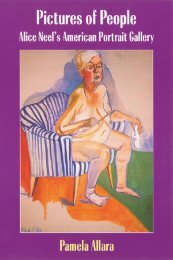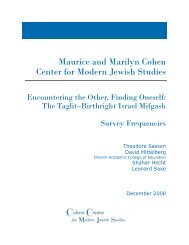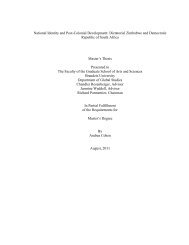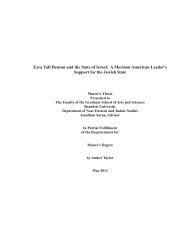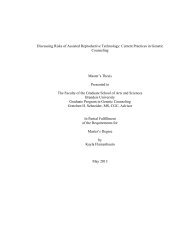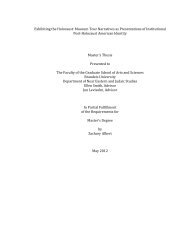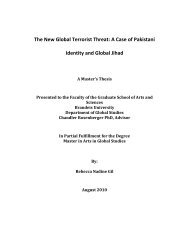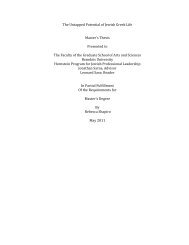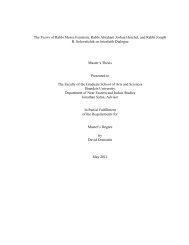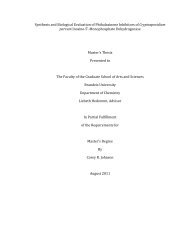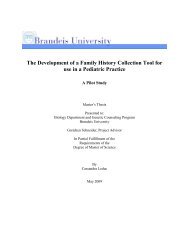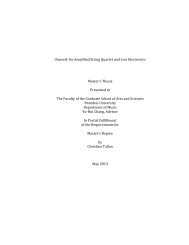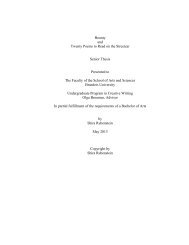A Familiar Frontier: The Kennedy Administration in the Congo ...
A Familiar Frontier: The Kennedy Administration in the Congo ...
A Familiar Frontier: The Kennedy Administration in the Congo ...
You also want an ePaper? Increase the reach of your titles
YUMPU automatically turns print PDFs into web optimized ePapers that Google loves.
Gaulle responded to <strong>the</strong> broader zeitgeist by offer<strong>in</strong>g <strong>in</strong>dependence to French West andEquatorial Africa <strong>in</strong> a speech <strong>in</strong> Brazzaville <strong>in</strong> 1958. <strong>The</strong> speech, given just across <strong>the</strong><strong>Congo</strong> River from Leopoldville, kick-started demands for <strong>the</strong> <strong>Congo</strong>’s <strong>in</strong>dependencefrom Belgium, which had exploited <strong>the</strong> huge colony for its natural resources ever s<strong>in</strong>ceK<strong>in</strong>g Leopold established a personal colony <strong>the</strong>re <strong>in</strong> 1885 and named <strong>the</strong> capital forhimself. Unlike <strong>the</strong> French or British, who had tended to look upon <strong>the</strong>ir colonies with atleast a degree of responsibility, even if it was overshadowed by paternalism andeconomic exploitation, Belgium had never shown much civic <strong>in</strong>terest <strong>in</strong> its onlysignificant colony. <strong>The</strong> wave of decolonization did little to change <strong>the</strong> situation, as <strong>the</strong>Belgians did not make much effort to ready <strong>the</strong> <strong>Congo</strong> for self-rule, not even organiz<strong>in</strong>glocally-run municipal governments until 1957. As many sources have po<strong>in</strong>ted out, <strong>the</strong>rewere only sixteen <strong>Congo</strong>lese college graduates <strong>in</strong> 1960. 2It is understandable, <strong>the</strong>n, that <strong>the</strong> Belgians were caught off-guard when Africa’sdrive for <strong>in</strong>dependence resonated so strongly <strong>in</strong> Leopoldville. After all, <strong>Congo</strong>lesepolitical parties had only been organized s<strong>in</strong>ce <strong>the</strong> 1957 municipal elections, which wereheld <strong>in</strong> only three cities. As a means of comparison, <strong>the</strong> Mouvement National <strong>Congo</strong>lais(MNC), which would later be <strong>the</strong> party of Patrice Lumumba, had published a manifesto<strong>in</strong> 1956 demand<strong>in</strong>g <strong>in</strong>dependence, but requir<strong>in</strong>g only that it be granted with<strong>in</strong> thirtyyears. This framework was borrowed from a Belgian academic, who had proposed athirty-year plan <strong>in</strong> 1955, prompt<strong>in</strong>g negative reactions from both sides. ConservativeBelgians opposed grant<strong>in</strong>g <strong>in</strong>dependence to <strong>the</strong> <strong>Congo</strong> even on <strong>the</strong> thirty-year plan,whereas rioters <strong>in</strong> <strong>the</strong> <strong>Congo</strong> were demand<strong>in</strong>g immediate <strong>in</strong>dependence <strong>in</strong> January 1959.2 A <strong>Congo</strong> Chronology, National Security Files, Box 28, Folder: <strong>Congo</strong> General 12/20/61 “<strong>Congo</strong>Chronology”14



